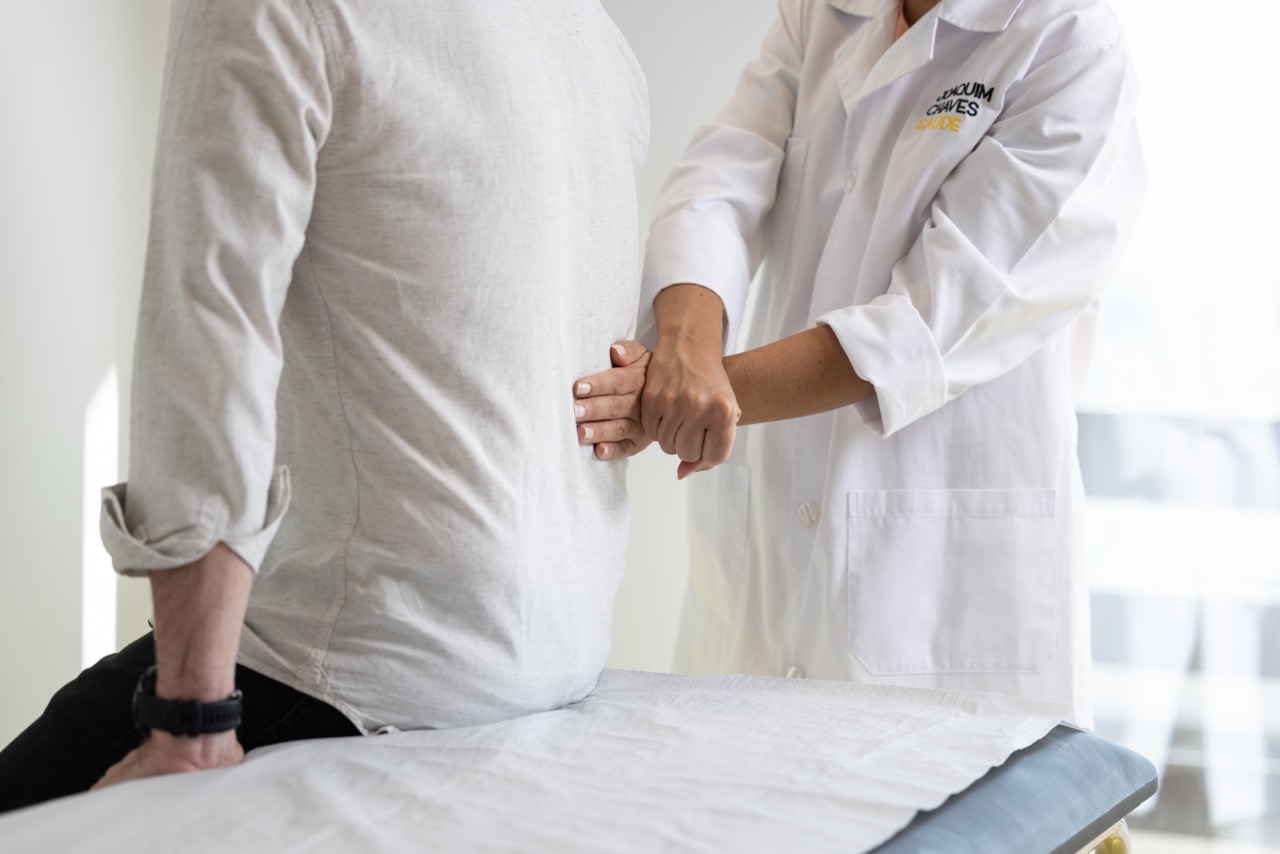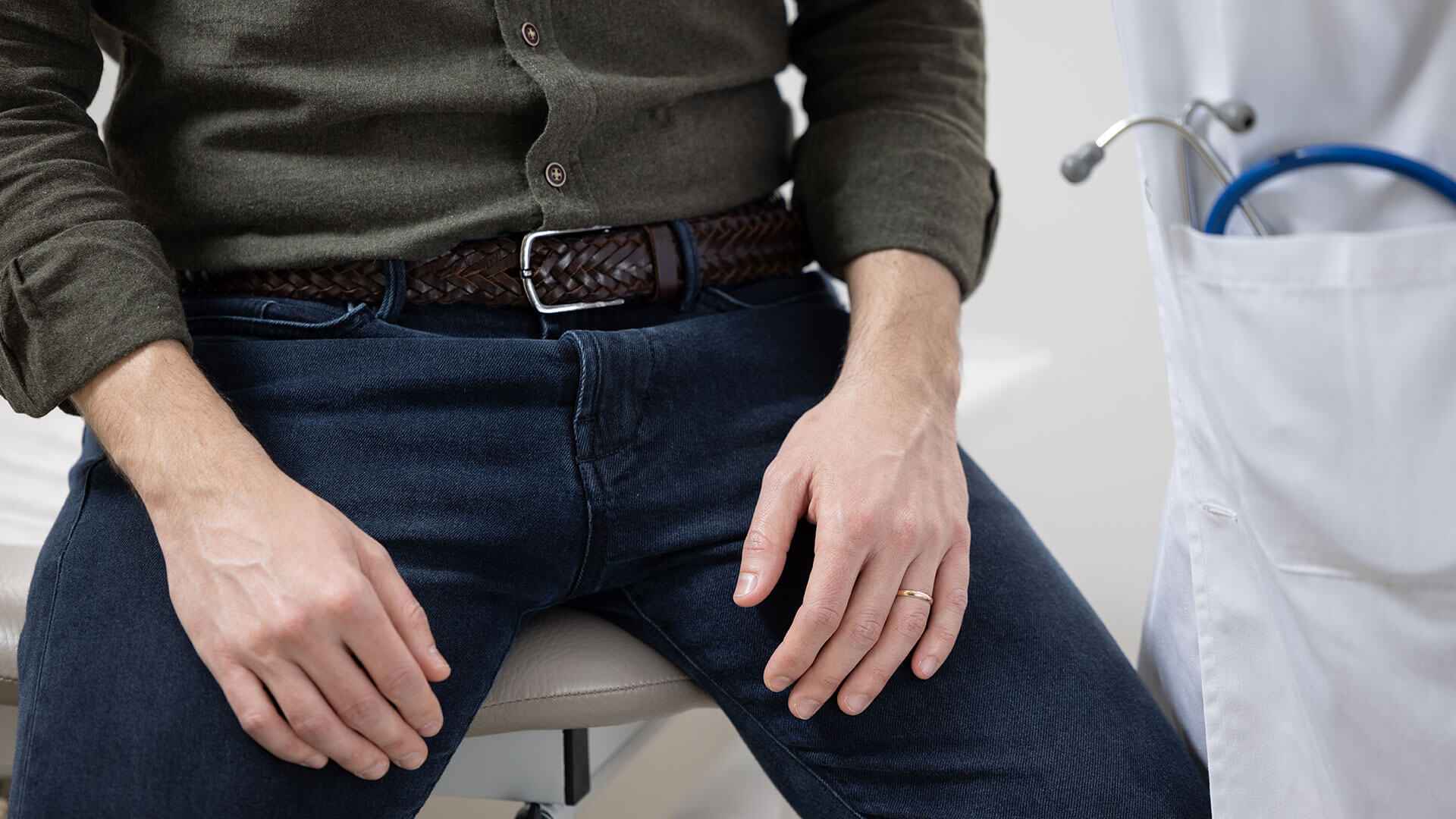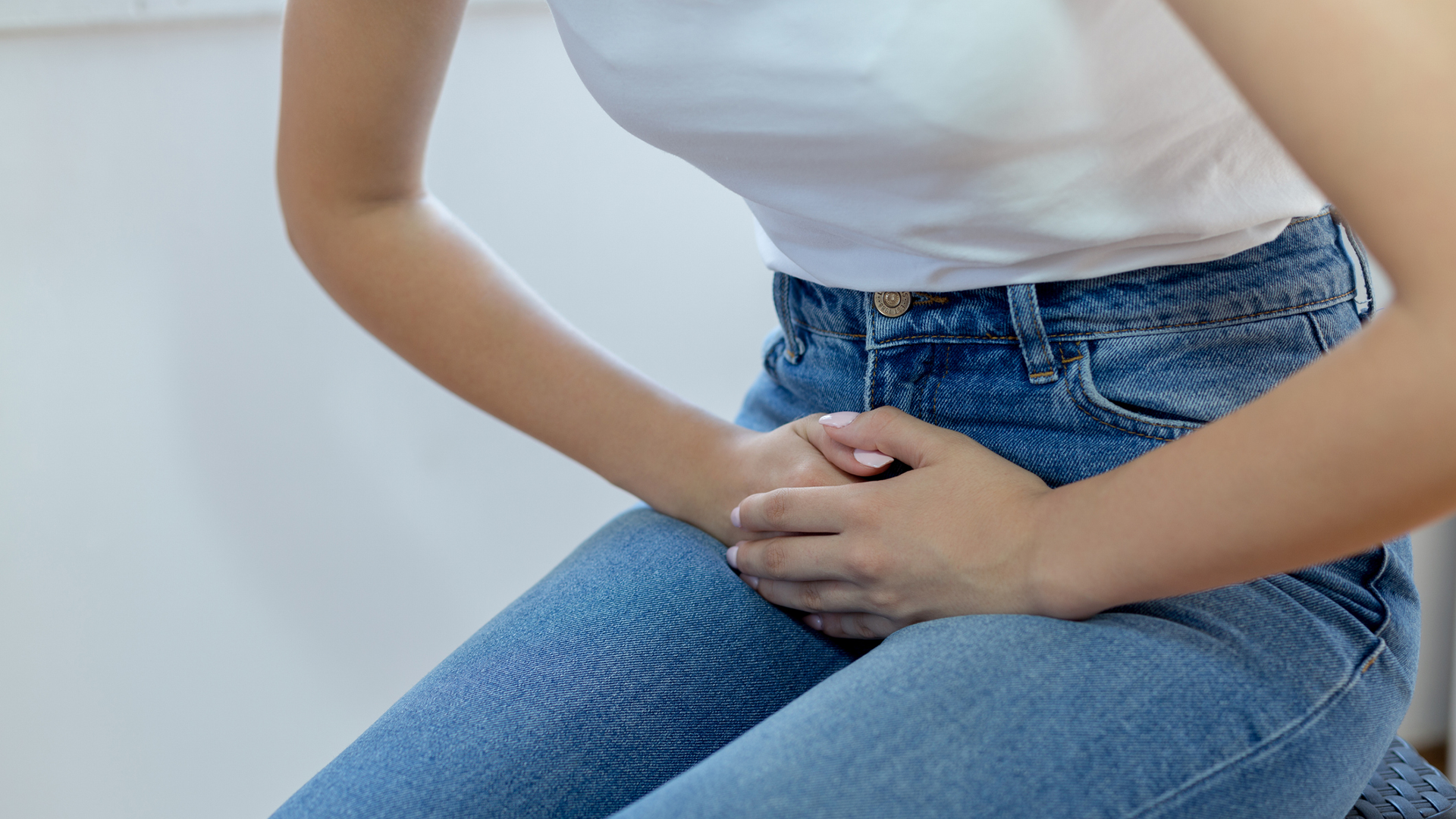The pain caused by kidney stones is called renal colic and is one of the most intense that a human being can experience. Discover why it happens and how to prevent it.
In Portugal, 8 to 10% of the population will experience at least one episode of renal colic, caused by kidney stones, during their lifetime. It is a clinical condition that leads to debilitating pain and has the aggravating factor of not having a relieving position. Learn about the causes and symptoms and find out what to do to prevent it.
What is a kidney stone?
A kidney stone (or renal calculus) is a hard mass, similar to a crystal, that forms in the kidneys. It results from the aggregation of minerals and salts present in the urine and grows over time, ranging in size from a grain of sand to a golf ball.
Stones (calculi) can also form in the bladder, but these are caused by bladder obstruction or a deficit in bladder contraction.
This is one of the most common pathologies of the urinary system, primarily known for the debilitating pain it causes. Renal colic is often described as more intense than the pain of childbirth, a bone fracture, gunshot wounds, or burns.
The most painful episode occurs when the stone passes through the ureter, a narrow and sensitive channel that connects the kidney to the bladder, often constituting a medical emergency. In addition, kidney stones can also cause severe urinary tract infections or long-term alteration of renal function.
What causes the formation of kidney stones?
It is not always possible to identify the exact cause of the problem, but there are several risk factors that increase the likelihood of developing this condition. Since the formation of kidney stones is related to a higher concentration of toxins in the urine, we can list some of the main reasons for this condition:
- Low daily fluid intake;
- Diet high in protein, salt, sugar, and uric acid;
- Increased urinary excretion of calcium, caused by imbalanced intake of this constituent;
- Consumption of many processed foods;
- Obesity and sedentary lifestyle;
- Environmental factors, such as hot climate;
- Family history of kidney stones;
- Metabolic, hormonal, and inflammatory intestinal diseases;
- Recurrent urinary tract infections;
- Low urine output;
- Low concentration of citrate or magnesium in the urine.
Knowing the main risk factors is important to understand what should be avoided and what should be adopted in order to prevent the development of kidney stones. The best treatment is the one that starts preventively, in the hands of the patient.
What are the main symptoms of kedney stones?
Kidney stones may not always be symptomatic. For example, when they are settled in the kidneys, they may not cause symptoms. The first warning signs appear when the stone is very large or when it starts to move along the urinary tract.
The main symptoms include:
- Sudden and intense pain, which can limit movement, usually near the flank or lower back region. The pain can even radiate to the abdomen or other areas such as the groin or pubic region.
- Frequent urge to urinate.
- Difficulty urinating when the urethra is obstructed.
- Decreased urine output.
- Pain during urination.
- Cloudy urine and, in some cases, blood in the urine.
- Fever above 38 °C (100.4 °F).
- Nausea and vomiting.
In the presence of signs and symptoms of kidney stones, it is important to consult your Urologist to initiate treatment as soon as possible, in order to avoid serious clinical complications.
How to prevent the formation of kidney stones
Prevention is the first step in avoiding the development of any condition, and the formation of kidney stones is no exception. Here are some habits to adopt:
1. Increase fluid intake
Consume about 2 litters of water per day to prevent more concentrated urine and promote a decrease in the concentration of ions with lithogenic potential in the urine. The clearer the urine, the better.
2. Reduce consumption of salt, sugar and alcohol
The consumption of these elements is associated with a higher risk of developing kidney stones. This way, avoid refined salt, processed foods, salty snacks, and cured meats. Opt for herbs and spices to season your food.
3. Control the consumption of animal protein
A high-protein diet can overload the kidneys as it increases the acidity of urine. Consult a nutritionist to determine the ideal amount of protein that your meal plan should include.
4. Don’t underestimate the condition
A kidney stone episode can last between 1 to 2 hours, and in extreme cases, it can last up to 4 continuous hours of intense pain. Only with specific medication can the pain be reduced. In more severe cases, surgery may be necessary. So, don’t let the condition progress and seek professional help.
What is the treatment for kidney stones?
Before undergoing any type of treatment, a detailed and precise evaluation should be conducted to exclude other conditions with shared symptoms. Additionally, the treatment to be pursued will depend on certain information, such as the location and size of the kidney stone, thus requiring additional diagnostic tests.
When the stone is small, and the pain is tolerable, certain medications can be used to provide relief to the patient and facilitate the natural elimination of the stone. However, in the case of larger stones and intense pain, minimally invasive surgical intervention may be necessary.
If the kidney stone is properly treated, it rarely causes permanent damage to the kidney. However, this condition tends to recur, so it is important to focus on preventing the formation of new stones and regularly consult with your Urologist.
Kidney stones: some myths that need to be clarified urgently
Due to their high prevalence in the Portuguese population and the intensity of symptoms, the sharing of experiences regarding kidney stones is quite common, which can lead to the creation of certain myths. Like any other condition, having reliable information is key to dealing with the problem properly.
Myth 1: kidney stones are rare
In reality, kidney stones occur very frequently. They affect around 800,000 Portuguese individuals and can even occur during childhood. Among the most prevalent urological diseases, kidney stones are surpassed only by prostate diseases and urinary tract infections.
Myth 2: Kidney stones are all the same
The crystals that form kidney stones can have some variations, especially in terms of size, colour, and texture, depending on the elements that compose them. They can be yellow or black in colour, with a smooth, irregular, or spiky surface. These differences primarily reflect in the intensity of pain.
Myth 3: If I don’t have pain, I don’t have kidney stones
Kidney stones are often asymptomatic in many cases. They can go unnoticed, especially if they are small, do not move, or do not interfere with the passage of urine through the urinary tract. Therefore, the absence of pain does not negate the need for preventive care in your daily life, both to avoid the formation of kidney stones and to regress or delay any existing condition.
Myth 4: All kidney stones require treatment
Not all kidney stones require the same level of medical treatment. The stones, due to their small size, composition, and/or their position inside the kidneys, can be naturally passed out of the body through urine or with the help of medication. However, they should still be monitored and observed in order to track the progression of their characteristics.
It is important to highlight that, in the absence of treatment when necessary, disregarding therapy can lead to kidney infection with the formation of pus in the urinary system, severe kidney obstruction resulting in loss of kidney function, and even sepsis (an exaggerated inflammatory response that can lead to organ failure).
Myth 5: kidney stone don’t return after being treated
This is a chronic condition, which means that once the first kidney stone is formed, others can develop throughout life. Even after successful treatment and the elimination of all previous stones, it is important to maintain a regular follow-up routine with your urologist. Annual check-ups, such as ultrasound scans, are essential for monitoring the condition and preventing serious clinical complications.
Myth 6: It is not always necessary to seek help in the case ok kidney stones
This is one of the myths that needs to be clarified, as it leads to delaying medical consultation and the progression of avoidable clinical consequences. Whenever you experience any of the previously mentioned symptoms, it is important to seek medical assistance. It is the only way to obtain a proper diagnosis, define an appropriate treatment strategy for your case, and adopt preventive measures adapted to your lifestyle. Furthermore, the mentioned symptoms can be shared by other conditions, so a specialist consultation is necessary to rule out other conditions such as appendicitis, diverticulitis, muscle back pain, pyelonephritis, renal infarction, or intestinal obstruction.
Why choose Joaquim Chaves Saúde for treating kidney stones?
Select the best medical care with precise evaluation methods and experienced experts in the field of Urology. At Joaquim Chaves Saúde Medical Clinics, you will find a team always available to provide you with all the solutions for your specific situation. Urology consultations are available at the Miraflores, Entrecampos, Moscavide, Carcavelos, Sintra, and Cascais Health Units. With Joaquim Chaves Saúde, improve your quality of life and well-being. Book your appointment digitally.






